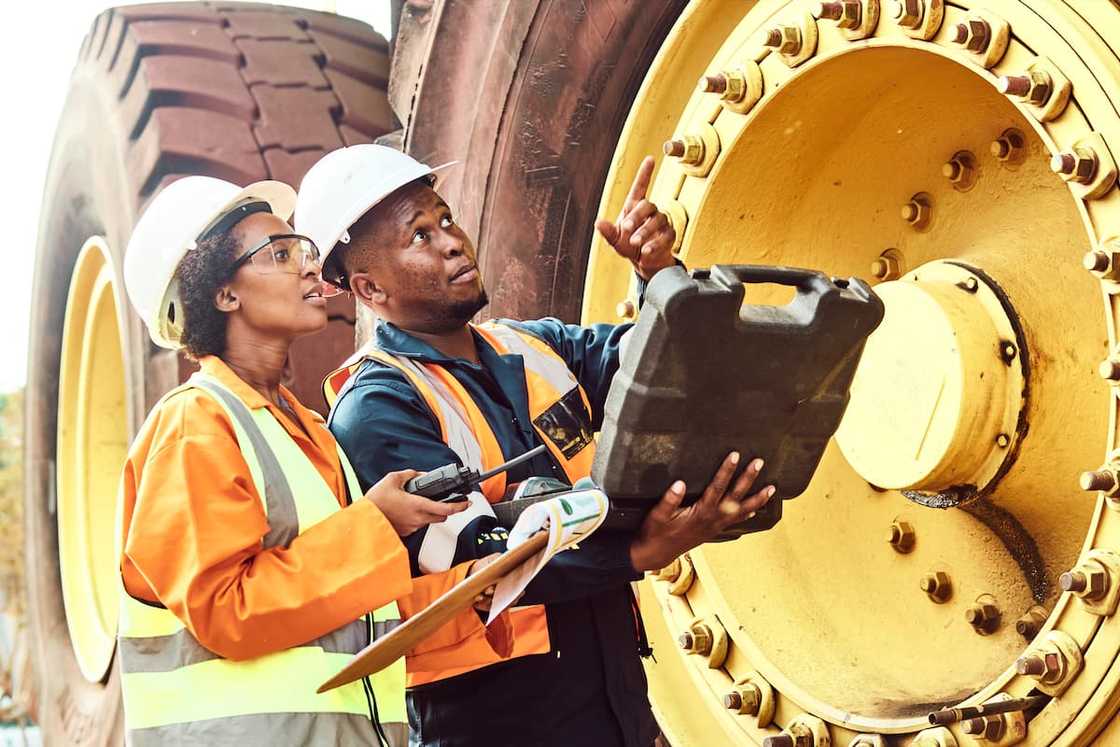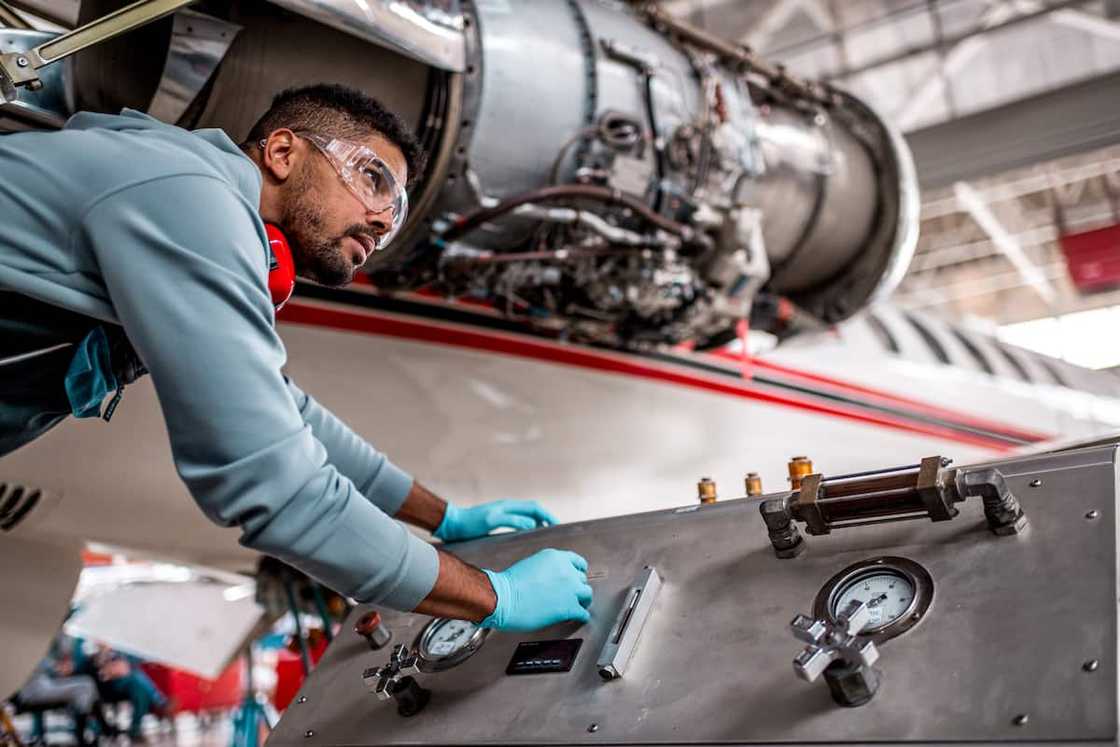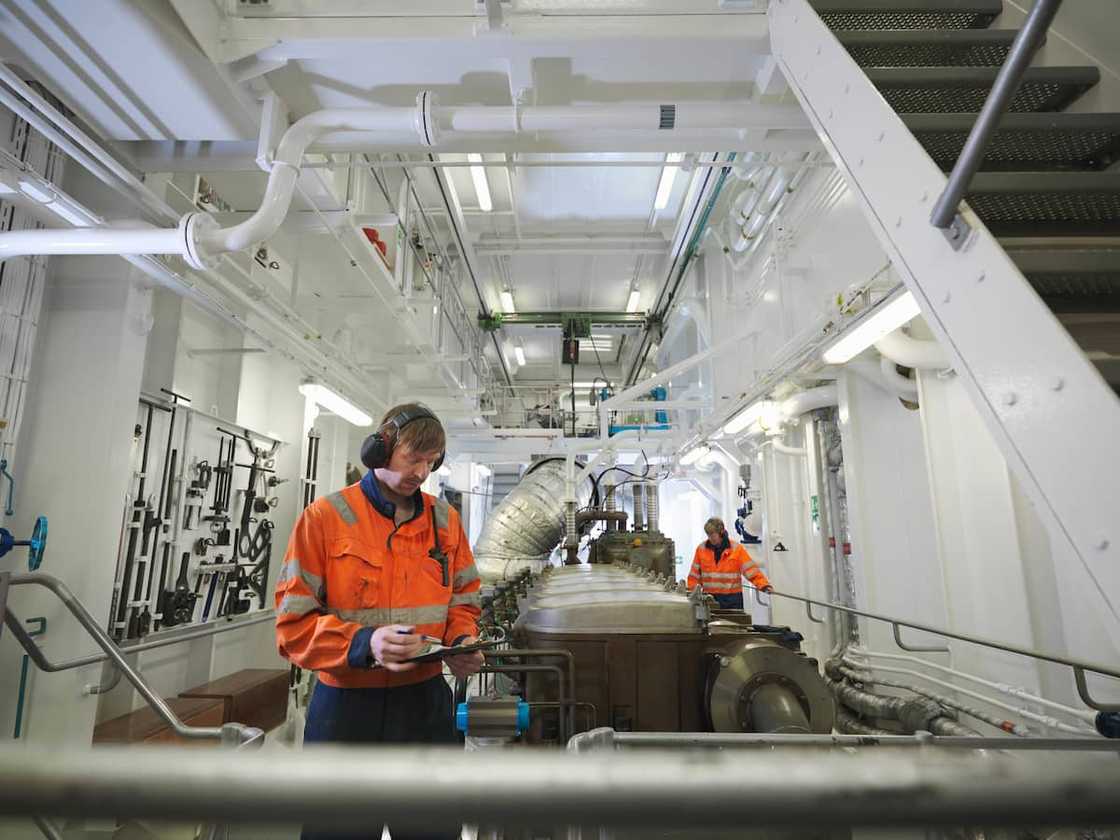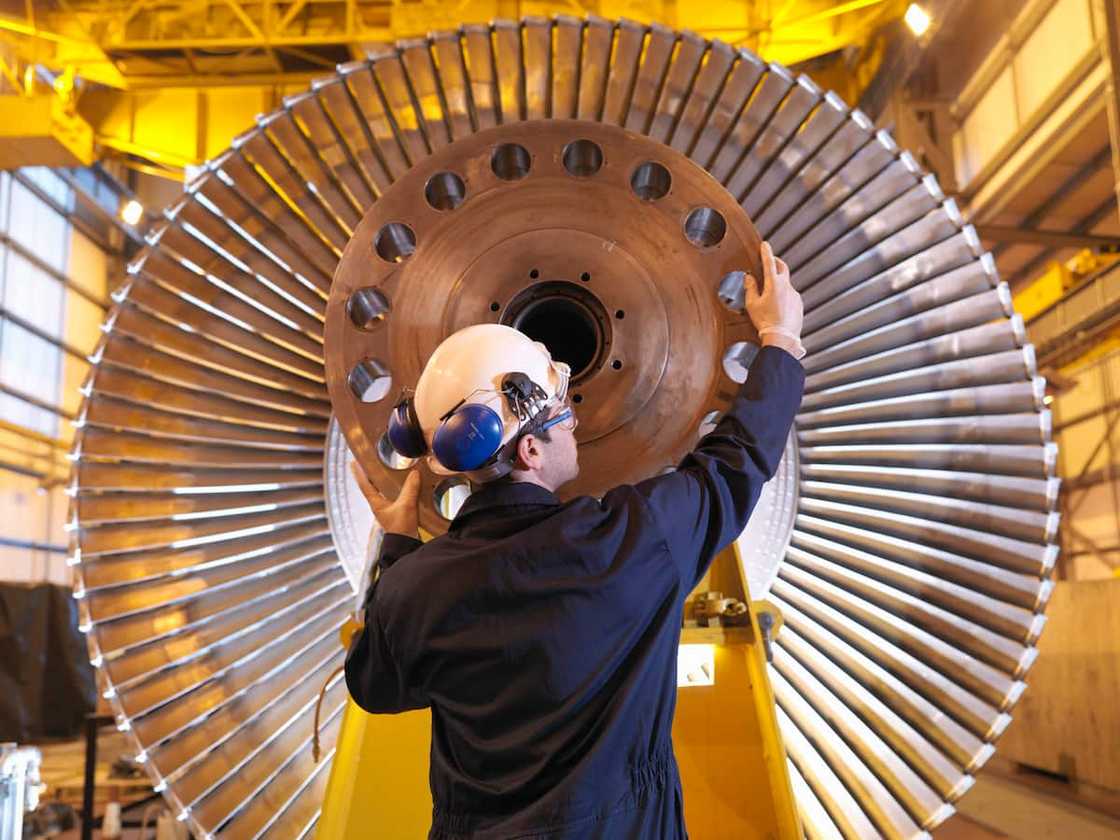Mechanical engineering salary and earnings in South Africa (2024)
Mechanical engineering is one of South Africa's core professions, standing as a cornerstone of development across various industries. Its pivotal role in driving progress is visible in sectors such as manufacturing, renewable energy, aviation, automotive, the financial industry, and others. This article highlights mechanical engineering salaries and how aspiring professionals can pursue a career in the field.

Source: Getty Images
TABLE OF CONTENTS
- What is a mechanical engineer's salary in South Africa?
- N2 mechanical engineering salary
- FAQs
- Is mechanical engineering in demand in SA?
- Can you make good money as a mechanical engineer?
- How does the mechanical engineering salary in South Africa compare to other engineering professions?
- Where can a mechanical engineer work?
- How many years to become a mechanical engineer in South Africa?
- Which university is best for mechanical engineering in South Africa?
- What are the requirements for studying mechanical engineering in South Africa?
The average earnings of a mechanical engineer in South Africa represent a broad spectrum of earnings influenced by factors like experience level, location, and the specific sector of the industry. The profession demands a blend of technical expertise and practical skills.
What is a mechanical engineer's salary in South Africa?
The average monthly mechanical engineering salary is estimated to be R29,419 by PayScale and R22,504 by Indeed. The annual average salary ranges from R270,048 to R353,028.
The lowest-paid mechanical engineer at the entry level earns around R12,166 per month and R146,000 per year—the highest-paid and most experienced professional makes around R61,000 monthly and R 732,000 yearly.
N2 mechanical engineering salary
N2 mechanical engineers with technical and vocational training skills can work in various engineering apprenticeship establishments like mechanical, fitting, or boiler making. They earn around R5,000 per month from the jobs listed on Careerjet.
N2 mechanical engineers can further their training to N6 to increase their earning potential. They can also pursue the National Senior Certificate (matric) for entry into universities and other tertiary institutions.

Source: Getty Images
FAQs
The mechanical engineering profession in South Africa is vibrant and multifaceted, but most people fail to take advantage of the vast opportunities. Here are some of the frequently asked questions and answers to give you a better understanding of the field;
Is mechanical engineering in demand in SA?
Skilled mechanical engineers are in high demand in South Africa. One has ample opportunities for employment if they have the necessary qualifications.
The country has a shortage of qualified mechanical engineers. The professionals appear on the critical skills list gazetted in October 2023 alongside engineering managers and mechanical engineering technologists.
Mechanical engineering skills are also in demand in other countries. The United Kingdom offers skilled worker visas to foreigners with qualifications in the field. The average annual salary of a mechanical engineer in the UK is around £26,400 per year or £13.54 per hour.
Can you make good money as a mechanical engineer?
Mechanical engineering offers a rewarding career path with the potential for good financial stability. It is one of the highest-paying professions in South Africa. The more you progress into your career, the more you command higher remuneration.

Source: Getty Images
How does the mechanical engineering salary in South Africa compare to other engineering professions?
Software engineers are some of the highest-paid professional engineers in South Africa. PayScale estimates they earn an average base salary of R391,893 annually and R32,657 monthly. Here is a comparison of the professions' average pay.
Profession | Average pay |
Mechanical engineer | R353,028 annually/R29,419 monthly |
Civil engineer | R359,109 annually/R29,925 monthly |
Chemical engineer | R349,515 annually/R29,126 monthly |
Electrical engineer | R379,577 annually/R31,631 monthly |
Software engineer | R391,893 annually/R32,657 monthly |
Where can a mechanical engineer work?
Mechanical engineering is a diverse discipline with careers in multiple sectors like artificial intelligence, robotics, biomedical engineering, automotive, space sciences, marine, military, aviation, financial sector, construction, education, manufacturing, mining, and energy. A qualified and skilled professional can work in various roles, including;
- Energy Engineer
- Mechanical design and development engineer
- Manufacturing Engineer
- Systems Engineer
- Production Engineer
- Technical marketing manager
- Transport Engineer
- Corporate investment banker
- Patent attorney
- Maintenance Engineer
How many years to become a mechanical engineer in South Africa?
A bachelor's degree in mechanical engineering usually takes around four years, while a diploma takes three years if studied as a full-time course. After studies, graduates will have to do internships to gain the necessary work experience.
You will then be required to pass the Professional Review Examination to qualify for registration with the Engineering Council of South Africa (ECSA). You can only practice professionally after receiving the ECSA certification.

Source: Getty Images
Which university is best for mechanical engineering in South Africa?
Several universities in South Africa offer diploma and degree programmes in various mechanical engineering fields. The top institutions in the country include the following;
- University of Pretoria: BEng – Mechanical Engineering (5-year programme)
- University of Cape Town: BSc (Eng) Mechanical Engineering (4 years), BSc (Eng) Mechanical and Mechatronic Engineering (4 years)
- University of the Witwatersrand: Bachelor of Science in Engineering (4-year full-time programme)
- North-West University: Mechanical Engineering and Electromechanical Engineering
- University of KwaZulu-Natal: Bachelor of Science Engineering (Mechanical Engineering)
- University of Stellenbosch: Bachelor of Engineering (BEng)
- University of Johannesburg: BEng in Mechanical Engineering
- The University of South Africa (UNISA): Diploma in Mechanical Engineering
What are the requirements for studying mechanical engineering in South Africa?
The admission requirements into university vary with the institution you want to study at, as highlighted;
At the University of Pretoria, you must meet the following requirements;
- National Senior Certificate
- APS 30
- Level 5 Mathematics
- Level 5 Physical sciences
- Level 5 English
Wits University admits students who meet the following requirements;
- APS 42+
- Level 5 English Home Language or First Additional Language
- Level 5 Mathematics
- Level 5 Physical Sciences
At the University of Cape Town, you will need to fulfil the following before being accepted;
- National Senior Certificate
- FPS 500
- At least 80% in mathematics
- At least 75% in Physical Sciences subject

Source: Getty Images
Mechanical engineering salary is expected to remain competitive because of the continuous advancements and the increasing complexity of mechanical systems in South Africa. The demand for skilled professions in the fields will also remain strong.
DISCLAIMER: This article is intended for general informational purposes only and does not address individual circumstances. It is not a substitute for professional advice or help and should not be relied on to make decisions of any kind. Any action you take upon the information presented in this article is strictly at your own risk and responsibility!
READ ALSO: Audiologist salary in South Africa: Duties and earnings
Briefly.co.za shared all you need to know about audiologist salaries in South Africa. Healthcare professionals in the field diagnose and treat hearing and balance disorders.
Audiologists usually work in hospitals and rehabilitation centres, but they can also open private practices. Find how much they earn on average and if the career is worth pursuing.
Source: Briefly News






